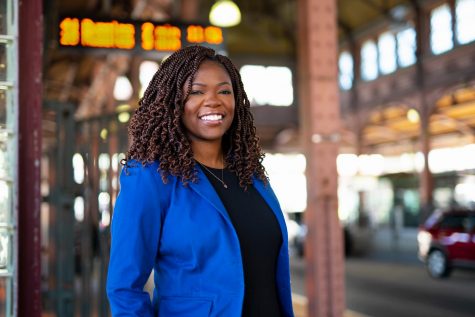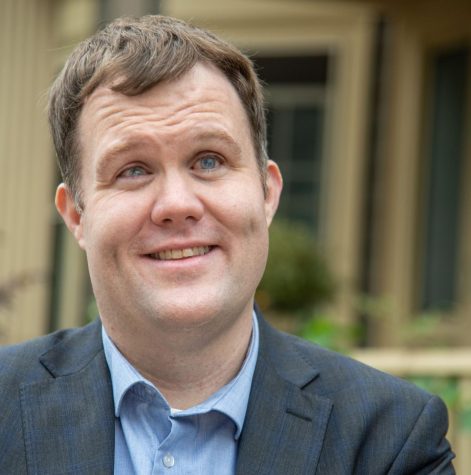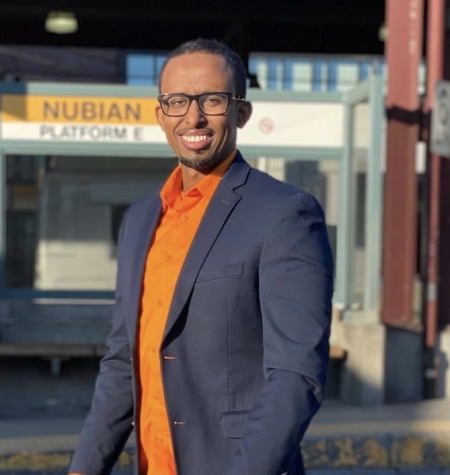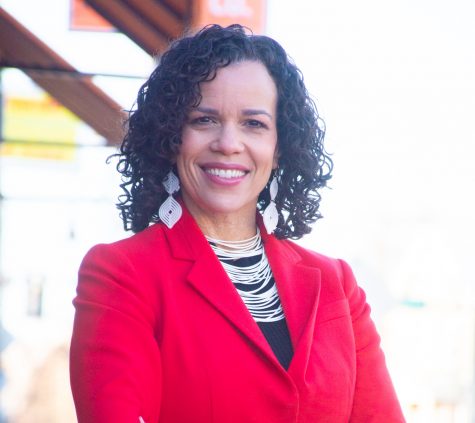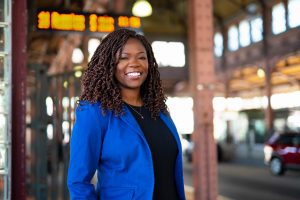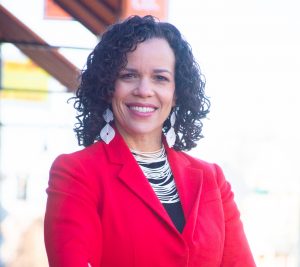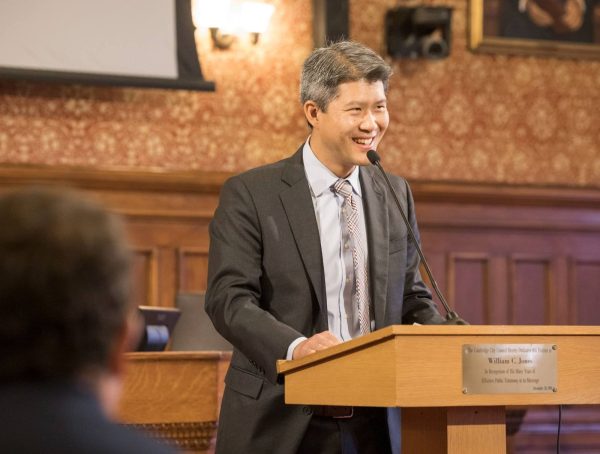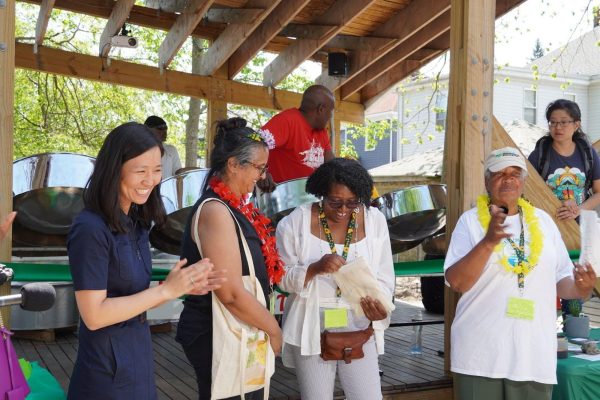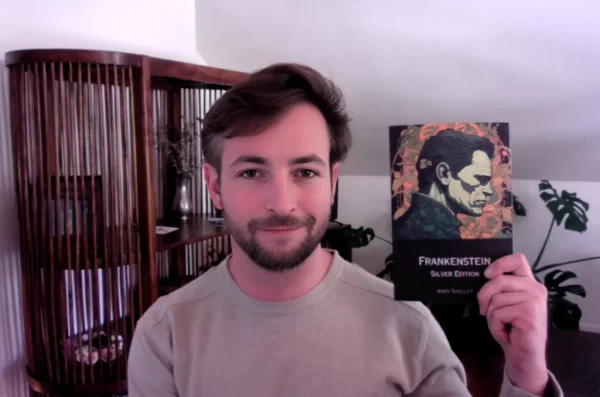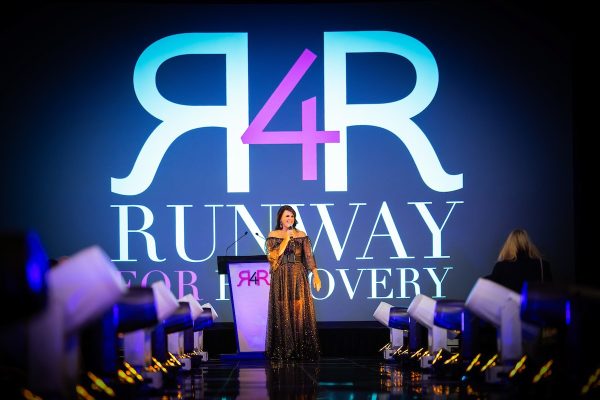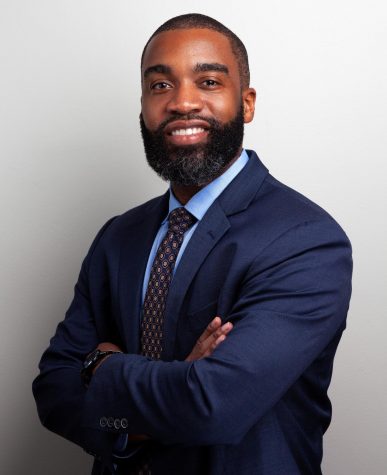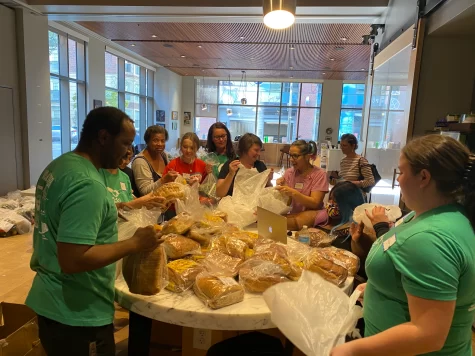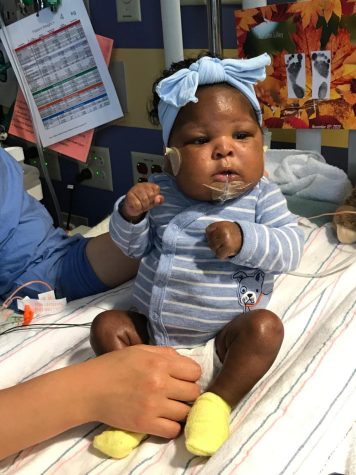Changemaker: Toy Burton aims to lift the stigma on mental illness and provide resources to Boston’s communities of color
Editor’s note: The following interview makes mention of self-harm and suicide. Reader discretion is advised.
Although there has been increasing awareness of the importance of mental health in recent years, communities of color have often felt excluded from the conversation. The negative impacts of racism and systemic oppression, on top of a pandemic that has disproportionately harmed people of color, have left marginalized communities in need of resources for improving their mental health and overall wellness. But mental health resources and awareness campaigns are too often inaccessible or culturally inappropriate.
DeeDee’s Cry, a local nonprofit organization started in 2017, aims to fill some of those gaps. Founder and Executive Director Toy Burton has drawn from her own experience to help fulfill the needs of communities that have too long been underserved.
“We can no longer hear the cries of others and do nothing,” said Burton. “We can’t erase anything that you went through, but we do want to put you on a path to healing.”
A mother of two, grandmother to four and native to Roxbury, Burton has been a beacon of hope and a voice for change within Boston’s underserved communities. For a time in her life, Burton struggled with drug and alcohol abuse, but today she is going on 24 years sober. Burton lost her own sister Denita “DeeDee” Shayne Morris to suicide 36 years ago, so she knows firsthand what it means to be a survivor.
DeeDee’s Cry hosts weekly support groups to provide a safe space for suicide survivors. The organization is also working to create a database of resources, both national and local, that focus on communities of color.
On February 18, mental health providers and advocates gathered with community members at Encore Boston for the first Mental Health While Black Summit, an annual event that has been virtual for the past two years. Burton and others were joined by Mayor Wu and other elected officials to spread the message of mental health awareness and outreach in communities of color.
Burton is also the founder of the Roxbury Unity Parade, which has been celebrating Black Bostonian’s contributions to the city since 2018.
The Scope spoke with Burton about DeeDee’s Cry, the importance of mental health accessibility and healing journeys. The conversation has been edited for length and clarity.
What motivated you to create DeeDee’s Cry?
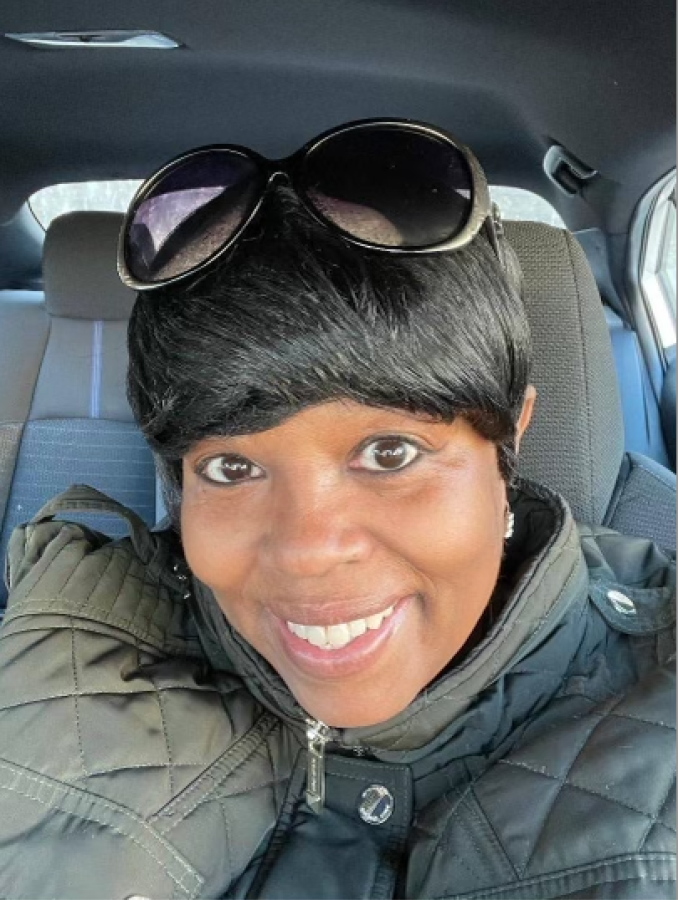
I came up with DeeDee’s Cry because I was on the internet, just looking to see what was out there for suicide prevention and being on these websites, I felt angry and hurt that I didn’t see anybody who look like me. To me, it wasn’t created for people of color, just because of the images and where the events were happening; this isn’t for somebody who lives in Roxbury, Dorchester, or Mattapan. So I thought, I’m going to create something to connect the community to the resources.
DeeDee was my sister who died by suicide when she was 23 in 1986. So Cry… I just felt like all of us were hurting like we’re crying and people are not listening.
How has your personal experience informed your work?
Even though my sister died by suicide, I had my own attempt when I was 25 that sent me to the hospital. Then even after I got out, you know, I was still in hurt, and went back to using drugs and stuff and was a cutter — which I didn’t know was a thing until years later. It was just something I would do because inflicting physical pain upon myself [to take] my mind off the emotional pain and I was feeling at that time.
My lived experience kind of mirrors the experience of those who live in the same communities that I do. It’s really cultural competency.
Most of the things that DeeDee’s Cry touches on, the workshops that we’ve had, have been things that I’ve dealt with personally. We had a panel discussion about addiction and mental health, and a panel discussion about hair loss and mental health. If I’m going through this, I know other people have to be going through this, too.
First and foremost, I am not a physician. I am not a clinician. I’m just someone who wants my community to do better, to heal and feel better. But I am one who can listen and one who can talk about and from my experiences.
Why is the importance of mental health such an important conversation to be having within communities of color?
The system is not designed for us, for people of color. So many people in our neighborhoods have family members that are incarcerated or family members that died by violence, dealing with domestic violence, dealing with molestation, dealing with noise pollution, air pollution that maybe someone in the suburb is not dealing with.
We can’t erase anything that you went through. But we do want to put you on a path to healing.
I definitely want to lift a stigma, because, in our community, we still have that stigma. And we call it, don’t tell your business. We wanted to let people know that it is okay to talk and it’s okay to give that burden to somebody else to help you carry it, or teach you … just to give you the tools and the strategies to make your burden a little lighter.
How has DeeDee’s Cry helped people in starting their healing journey?
Well, definitely they need a safe space that they feel connected to. So of course, they need to see people who look like them, to make it feel that it’s for them. So even with DeeDee’s Cry flyers, I make sure that people’s faces are on them, so people can see it’s for them. But of course, anyone can attend.
A lot of people just don’t know that they need to be on a healing journey.
Even when I was a cutter, and I was probably cutting daily, I didn’t know that wasn’t normal. I didn’t know I should be seeing a therapist. It’s just two different cultures or realizations.
In the Black community it’s basically, what happens in the house, stays in the house. You don’t know that it’s depression that you’re sleeping until noon. You know it could be depression that’s making you overeat or under-eat or oversleep, and you just think it’s normal for you.
DeeDee’s Cry has a weekly group that has five-week sessions. It’s called ‘Healing Begins with Me.’ So the participants first have to recognize that healing.
[The participants] definitely express it, they definitely say, ‘I didn’t even know that, thank you for teaching me that. Thank you for showing me that.’
What impact have you seen your organization have on your community?
DeeDee’s Cry steps in where other programs do not. We don’t charge for the services we provide because we do believe that cost is a barrier. We try to make things local to Dorchester, Mattapan, just to make sure that it’s accessible to people, and that people can get there at least by the T because not everybody has a car.
During Christmas time, we did a toy giveaway, because we knew Christmas could be stressful for some parents that may not be able to get their children toys. When the home [Covid testing] kits first came out, on Christmas Day we were giving those out to the community, with a preference to people who lived in Roxbury and underserved neighborhoods of Boston.
During COVID, we received support to help the community. We did Amazon gift cards at a time when people were doing food gift cards or giving them food. Because what if their need was not food? What if their need was diapers?
When your need is fulfilled, you’re less likely to have stress, less likely to have anxiety, less likely to be depressed. Like when you have that support and that support indeed looks different to everyone.
When I talk to people about DeeDee’s Cry, they’re just so grateful and thankful to know that there’s an organization out there that’s working for suicide prevention and mental health education for people of color.
The Mental Health While Black Summit returned in person on February 18 at Boston Encore for the first time in two years. What was it like to gather in person, and how can these events help spread awareness in the community?
In 2019, we had our first Mental Health While Black event at the Bolling Building [in Roxbury], but this was kind of on a bigger scale for that same type of safe space feeling. What we had in 2019 was an hour. This was a whole day of different workshops, and breaking out and having breakfast and lunch together. It was more community building and bonding and healing — definitely healing.
[Because of Covid] we went virtual, and I love the virtual space because we were able to reach more people. But I do love being together in community too because we need that too.
I still envision us filling in the gaps wherever we can, whichever ways we can assist or help. We still have our groups, with more in-person and outdoors. We did have Movement in the Park, so hopefully, we’ll get back to that, just being in community with one another and out in the fresh air.
We love those who would go to a mental health summit, but we want to reach the families and have the resources there so they’re there to have fun with their family, because they may not know they need that resource until they read that pamphlet.
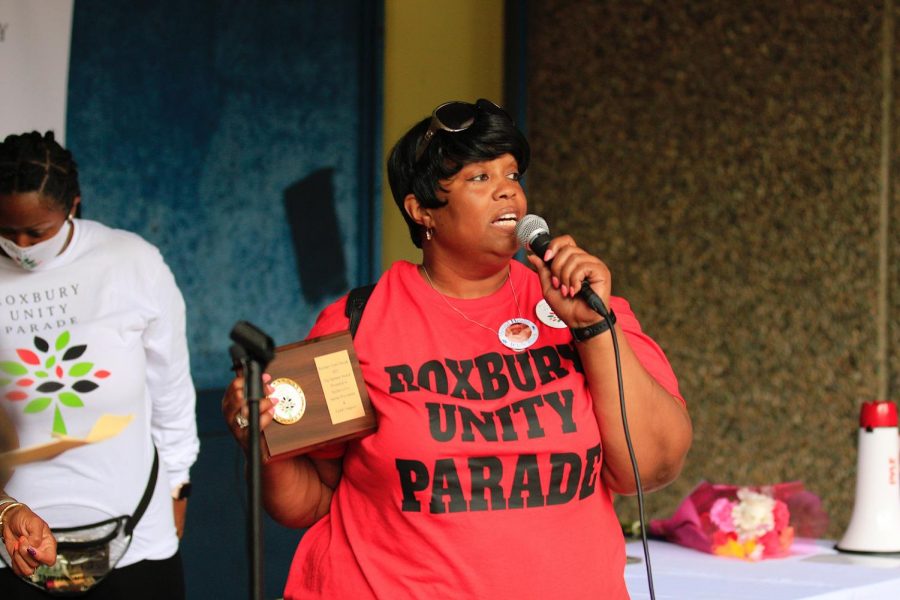
How has the topic of mental health been gendered and how is DeeDee’s Cry shifting the narrative?
We are planning a summit for June for the men. This one will be Men’s Mind, Body and Spirit Summit on June 17th, which is Father’s Day weekend.
For so long men have been told, don’t cry and be strong and man up, you have to do it all by yourself. The same with the “strong black woman”. I’m strong, I can do everything. So we have to break down that way of thinking, to let them know it is okay to not be OK. It is ok to talk, it is okay to seek help.
DeeDee’s Cry, even with all our panels, it’s really important to me to have a man’s perspective. We’ve had panels with just men because I really think it’s important for them to see and hear stories of other men dealing with [what they’ve been] through and just showing them that there is light at the end of the tunnel.
How does the Roxbury Unity Parade fit into your other work?
No sooner than I had the idea of DeeDee’s Cry, I had the idea of the Roxbury Unity Parade, because I grew up in Roxbury. Roxbury was Boston’s Black neighborhood. I was like, ‘Wait a minute, Dorchester has a parade, Roslindale has a parade. What about my community where I’m from? How come Roxbury doesn’t have a parade? I’m gonna start a parade for Roxbury.’
The summer of 2017, there were a lot of homicides happening that really made me put it into action, because I had the idea before, but it wasn’t until 2017 that I said, ‘Hey, let me do something about this because I felt my community hurting.’
I wanted to highlight the good that happens in Roxbury. The news so many times could portray Roxbury in a bad light; so I just wanted to highlight the good. We also celebrate people who uplift Roxbury every day, so we give out awards that day. I always say it’s Boston’s only parade that celebrates Black Boston. This parade is going to be for us celebrating Black Boston and our contributions to the city.
Is there anything else you would like readers to know?
They can follow us on social media — we are on Twitter, YouTube, Instagram and of course, Facebook. If they would like to give to DeeDee’s Cry, they can make a donation on our website.


